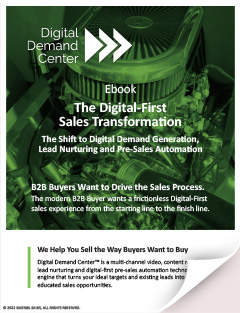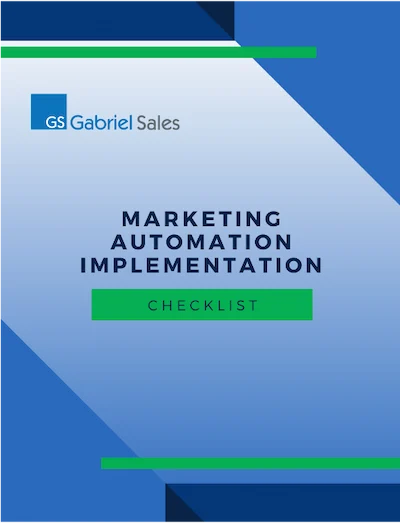This is part-two of a two-part blog describing the difference between inbound marketing vs. outbound marketing for B2B. Click here for part one.
Inbound marketing refers to instances when your prospect finds and reaches out to you on their own. In the B2B space, there are three main strategies to help make this happen:
1. Content marketing
Content marketing involves publishing digital marketing content in the form of blog posts, white papers, YouTube videos, etc. and then getting that content in front of your prospects by pushing the content. By creating content for each stage of your buyer’s buying cycle—from discovery to consideration of alternatives, etc.—you help guide your prospects to the close.
2. SEO
SEO simply refers to getting to the top of Google’s (and other search engine) results pages. Buyers today have access to a wealth of commercial information, and 89% of buyers use search engines to research their purchase decisions (www.firepolemarketing.com). As a marketing tactic, SEO means creating and optimizing both your website and your marketing content so your prospects can easily find it when they use search engines like Google. To learn more about SEO, click here.
3. Social media
Social media platforms are a new and effective way to increase exposure and generate new leads. As most of your prospects are already on social media, this is great way to encourage participation and interaction. By regularly publishing blog articles and posting updates in the various social media platforms (Facebook, Twitter, Linkedin, etc.), your name stays in front of your prospects and they can easily engage with you anytime they have the need.
Depending on your product/service, industry and length of buying cycle, a different mix of inbound and outbound techniques may be appropriate. While many outbound techniques are waning in effectiveness, for many in the B2B industry, they are still essential. Inbound tactics have recently seen a huge spike in effectiveness; Hubspot recently found that social media has a 100% higher lead-to-close rate than outbound marketing. However, each company is different and it often takes a lot of research and testing to find the most efficient and effective blend.
To learn more about the sales and marketing trends you will need to thrive in 2014, click here. If you have any questions, please feel free to contact us.





